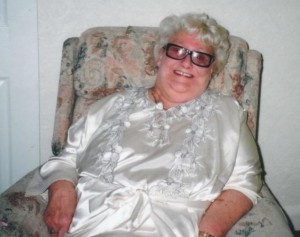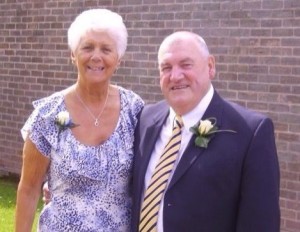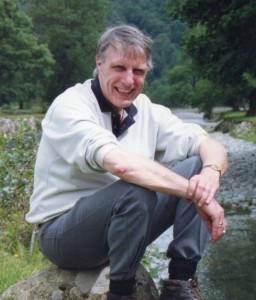The fruit of a Christian life is to become a fulfilled human being:
Posted by SociusJan 16
Jesus never needed to boast about himself, or to manipulate others, to accept his way of thinking. At his baptism, by John, in the river Jordan, the heavens opened, the Spirit was present in the form of a dove, and the voice came from heaven, because Jesus was a fully human being, in whom the Father was well pleased. When any disciple is fully content with whom he, or she, is – happy being that person, warts and all – then he, or she, has achieved the fullness of being human, as man or woman. In Jesus, God is also well pleased with each of us who are his disciples, because, in Him, we become as fully human as we are meant to become; we also become as fully ‘god-like’ as we are meant to become.
Recently, we have had a spate of funerals for people closely involved in our Parish. In their own individual ways, they had achieved, for themselves, their full potential, and God took them to himself, much to the sadness of their friends and relatives.
On another previous occasion, this blog carried some comments about parishioners who had died, and people remarked how much they enjoyed reading about those who had died – people whom they had not known, personally. With this in mind, I now have the temerity to write, once again, about some who have died in the past three months; in doing so, I hope to share something about what God has done, in them, hoping that this might encourage we that are left behind, on our continuing holy journey of life.
 |
Sylvia Bonner died 15 November 2013
The last time Sylvia fell ill, I received messages that she was in Chorley hospital. She often sent messages when she wanted to see me, and often that was for me to hear her confession. In the event, life was pressing on me then, and I knew she had such strong faith that it did not really matter which one of us priests would go; at that time, Fr. Stephen went to visit, and when he returned, he said to me: “What a marvellous person is Sylvia”. I just nodded, because I knew that to be the case. Sylvia was very happy with that visit. When she was eventually released from hospital, I got another message: “Tell Fr Jonathan not to come as I am not well enough yet for him to come and see me!” Actually, her great friend had been Fr. Ambrose, (Bishop Ambrose we should call him – then not as Parish Priest, but here in Leyland for his second stint. He was then retired after his 12 years as Bishop of Hexham and Newcastle, still carrying out wonderful work, throughout the last 7 years of his life, helping people here in Leyland, (including Sylvia, to whom he ministered so well and kindly).
Sylvia had been a nurse, very involved in the district, and she ran a nursing home, nearby Preston. She was very practical and efficient, and was one of a group of parishioners who nursed, voluntarily, two dying Ampleforth monks of Leyland, in the Leyland Priory House. First was Abbot Herbert Byrne, who died in 1978, and then came Fr. Kenneth Brennan; he died in 1986. She was excellent at her task. Sylvia had many sufferings to face in life, but was never down-hearted. Her most obvious suffering, in the latter stages of her life, was her blindness, but this was coupled with a weak heart. Overall, she simply made the best of it, and was always welcoming to all who came to her. She had other sufferings to bear – some of them even harder to carry – but, she bore them all, with the same spirit.
At her funeral, her one remaining son, Chris and his son, Roger, had come over from Australia to be present. They chose the readings and the Gospel was The Beatitudes (Matthew 5: 1-12). Should you ever want to find a description of a good Christian, I suggest you take a look at Sylvia, her poverty of spirit, her gentleness, her mourning for so many things, including the death of her two sons, David and Michael. She also lost Cob, her first husband, and then found Danny, and they married each a second time. Danny’s wife, Evelyn, had also died; she had been Sylvia’s best friend. She hungered and thirsted for what is right, as far as she could; she was so merciful, pure of heart, and a peacemaker; it is probable, in some senses, that she was persecuted in the cause of right. And so, I thank God for her; I thank God that many of us, in the parish, have known her and learned from her, just by knowing her.
 |
Alex Stirzaker with his wife Barbara
Alex Stirzaker was a most likeable fellow. He died in the last week of the liturgical year, on the feast of Christ the King, 24 November 2013. I always knew him as cheerful and friendly – and one could count on that attitude. He would never, just walk by, knowingly, and always had a pleasant word to say. Alex was a man who displayed contentment, and, I would suspect, for most people, this would be the way he was. No wonder, then, that he was such a good husband, father and grandfather. Loving is the heart of the Christian Life, it is what we are made for, as human beings, and being a loving person is such an attractive quality. In his manly way, surrounded by Barbara, his wife, and the five girls, all of whom have left the nest and are married with their children, Alex simply was a lovable, person because he was so loving. Alex was a good friend of God, and for this reason, he was so likeable. A convert to our Catholic Church, his mother said to him when he told her of his intention: “Well, if you do become a Catholic make sure you become a good one!” This he did. He was a life-long supporter of Preston North End, and the last thing Alex said to me, as I was leaving his home after sharing with him the sacraments, a week or so before he died, on a Saturday afternoon, was a shout from the bedroom: “Fr. Jonathan!!” So I went back into the house, and he told me that PNE had scored a goal, and were ‘one up’ against Leyton Orient. Not bad! When playfully asked, by his wife, why he had called me back just for this, he said: “Fr. Jonathan is interested.” I was indeed! Alex was ‘outside himself’ as ever even when he was really seriously ill! I loved hearing about him, from his eldest daughter, in her appreciation of dad at his funeral, how he would play for hours with his grandson, especially football. Only a wise man knows how to play, both with his children and grandchildren. He leaves a huge hole, in the lives of his family, and many others miss him, too.
 |
Frank Calderbank died on 20 December 2013
Frank was a ‘reserved’ man and a very good engineer. He knew God; he loved God, and his neighbour, despite all difficulties. He died before Christmas and was buried after the Feast of the Nativity – a very homely time. The Spirit of God was with Joseph and Mary; the Spirit of God is with us too. John the Baptist saw the Spirit falling on Jesus at Jesus’ baptism: and in his photograph, above, we see the Spirit of God falling on Frank – in his openness – in the frankness of his smiling face, at that moment. This was typical of him.
Our religion is not one to follow an idea, or an ethical system or a wonderful dream about a perfect life. Our religion is one which is based on events that happened, and because of those events, we believe in the person, who was involved with them, Jesus Christ, our Lord and Saviour. The events that marked Frank’s life follow on, now, and it is through Frank’s response to these events – events that marked his life, in faith and love – that he was able to become the person we knew and loved.
Frank was born in 1938, and was the only child of Francis and Ellen, of Leyland. Frank had two older brothers, both of whom died in early infancy; to add to the tragedy, his mother passed away when he was only three years old and so it was decided that Frank should be brought up by his father’s sister, Teresa, (who he called mum), and her husband, Jim Durrigan. Teresa and Jim also had four children; Frank was raised, happily, with them, until early adulthood, whilst staying in regular contact with his father, Francis. He attended our Parish Schools, here in Leyland, and was simply a young Catholic Leyland lad – growing up.
At the age of 12, Frank was sent, as a boarder, to a seminary in Hampshire, where he remained until the age of 16. On returning home in the summer – in his words: “He discovered girls” and was destined not to return to the school in Hampshire. Finding a completely new and different direction in life, he became an apprentice engineering machinist at Halsteads Engineering in Leyland, and here, a life-long interest (some would say obsession), in all things mechanical, was nurtured.
At the age of 18, his love-life definitely moved in the right direction, when he met his future wife, Pat, at St. Marys Leyland Youth club; they were married four years after this meeting. However, his call to National Service meant they were soon to be parted, as Frank then spent much of the coming two and a half years in Germany. (At the height of the ‘Cold War’, National service was extended by 6 months, from the standard 2 years.) On returning to ‘Civvy Street’, Frank was forced to look for a Job, and this he found at Iddon Brothers. Serving Iddon Brothers for the rest of his working life, Frank climbed the ladder, from Machinist to Production Director. He loved his job, but was never happier than when he was surrounded by his family, extended with two daughters-in-law and three grand-children.
His involvement in the Boy Scouts’ Association grew, as both sons, Michael and Peter, became members, Frank eventually finding himself Scout Leader. Franks ‘other love’, (apart from Pat and Iddon Bothers), was his yellow MG; bought as a ‘runner’, he spent 15 years improving ‘her’, with the minimum amount of money spent – it was a lesson in budget motoring!
In recent years, Frank became one of the inaugural members of the South Ribble Catenian Circle, where he, and Pat, forged new friendships and a busy social life. The Society has been a source of strong support, to Frank and Pat, during his protracted illness, when God released him from his suffering and took him home to heaven. During 53 years of marriage, Frank left his family, and friends, many happy memories. His legacy has been to raise a family that love him, and will sadly miss him, but remember him with smiles on their faces.
Fr. Jonathan

One comment
Comment by Oakley Glasses Valve on July 22, 2014 at 5:58 pm
Pretty insightful post. Never believed that it was this simple after all. I had spent a superior deal of my time looking for someone to explain this subject clearly and you’re the only one that ever did that. Kudos to you! Keep it up